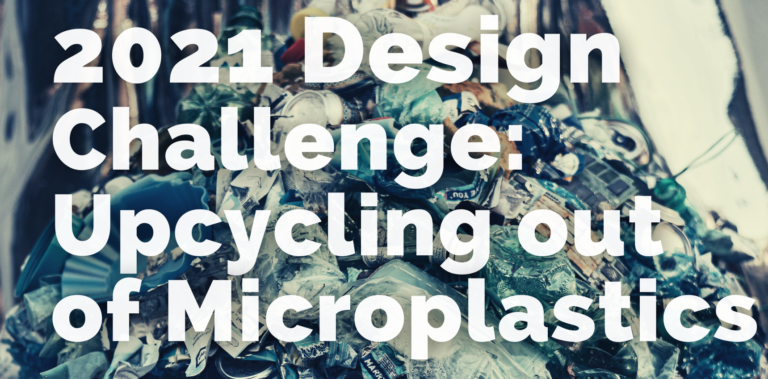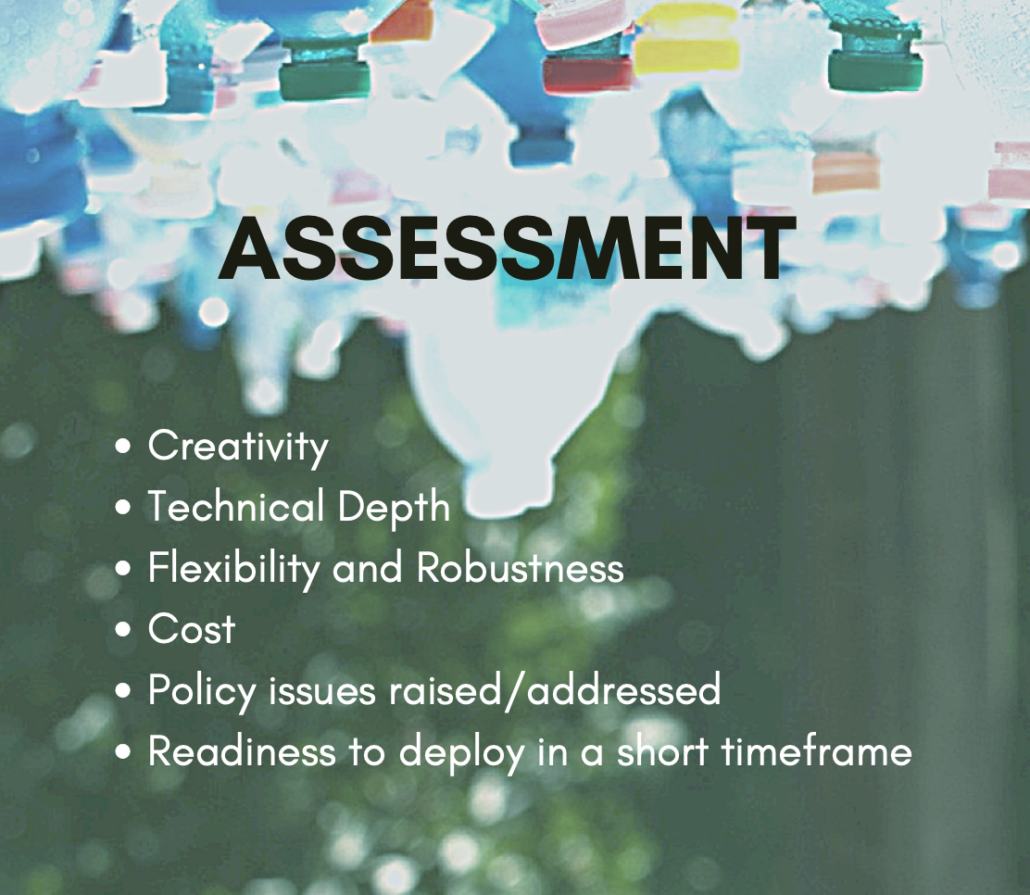
Winning Teams
The student teams were then judged by a diverse panel on the categories of specificity, creativity, thoroughness, vision and policy elements, and readiness, feasibility, and economics. As announced by Dean Boyce on April 5th presented are the winning teams, each of which will receive a $500 cash reward.
Polymasa, Gustavo Lopez Mendoza (GSAPP, 2022), Ji Ku (SEAS, 2022), Juliet Brooks (MBA, 2022) won the Best Overall Award with a design to upcycle ocean plastics for biocomposite 3D printing.
The Plastics, Lynne Irvin (SEAS EAEE 2022), Karen Copeland (SEAS EAEE 2023), Nicholas Amelinez-Robles (SEAS CHEME 2023), Jacob Rosenfeld (SEAS CHEME 2023) won the Most Thorough Award with their design, which uses density separation and bioreactor depolymerization to separate and reuse microplastics from wastewater treatment plants.
The Mechoplastics, Olivier Masse (SEAS 2021), Gaurav Kulkarni (SEAS 2022), Pranav Gopal (SEAS 2022), won the Most Creative Award with their design MagnoFilter, which is a stormwater microplastics filtering device using magnetic extraction.
Upcycling Out of Microplastics
Professor Aaron Moment and Professor Sanat Kumar will be leading the challenge, with experts in industry and policy, to guide students on projects aimed at reducing microplastic pollution.
We need sustainably minded students, interested in topics ranging from engineering to public policy, to join us! Students may join as teams or as individuals to design a process for a chosen polymer or polymer stream that can incorporate a variable mix of tech, econ, and policy elements, to upcycle microplastics. Prizes will be awarded to the best projects.
Sign up here for more information! Questions? Email us seaseship@columbia.edu.
Challenge Timeline
Your Efforts Will Be Judged According to the Following Criteria:
February 19th: Kickoff, 1:00 – 3:00 PM EST via ZoomFebruary 20th: Team building session @ Kumospace- February 26th: Guest Speaker: Carlo Badiola, Tier 0 Presentation
- March 8: Guest Speaker: Clare Miflin
- March 12: Guest Speaker: Guru Karaswamy, Tier 1 presentation
- March 19: Tier 2 presentation
- March 26: Final Video and Slides Submission
- Every Tuesday: 10-11 AM, Check-in sessions with professors
- April 2: Final meeting with student team presentations

Challenge Goal
- You may focus on any aspect of the recycling stream – i.e., collection, sorting, immediate reuse, physical processes that can convert plastics into other useful purposes, or the chemical breakdown of polymers into useful small molecule products.
- You will need to include and address any policy issues raised by your design while providing an economic justification of your ideas’ viability.
- We invite students to tackle this challenge together by first, identifying and honing in on a particular polymer or mixed polymer waste stream. By the end of the challenge, students will have designed a process for a chosen polymer or polymer stream, that includes a variable mix of technology, economic, and policy elements.
Additional Information
Overview
Polymers are ubiquitous in daily life. While their low cost, light weight, wide range of tunable properties, inertness and stability make them popular, it is precisely these factors that make them easy to discard (and not be reused).
Significant detrimental effects of the persistence of polymer waste include, for example, the giant plastic patch in the Pacific Ocean gyre, as well the large amount of plastics polluting both the terra and aqua environments with detrimental effects on flora and fauna.
Polymers are challenging to reuse as this carries cost, and it may not be economically or technically feasible to recover the properties and utility of the original materials (“recycling”), let alone produce materials with improved properties (“upcycling”).
Despite these challenges, recycling/upcycling plastics would significantly alleviate environmental concerns, while at the same reducing the use of hydrocarbons used to produce them. Currently nearly 10% of all petroleum/gas is converted to plastics, with nearly 10% used in this production. Policy matters, for example using recycled plastic in building materials which would require the modification of local building codes, are also critical.
Multiple, innovative solutions are thus called for, going from the obvious (i.e., creating different streams of plastics which can be co-recycled vs. chemically breaking down plastics into value added small molecules) and this design project will task you with coming up with any one or any combination of these approaches.
Example projects
This is by no means an exhaustive list but rather trying to represent the breadth of projects that could be formulated.
- Design innovative ways to collect and sort plastics and then reduce their volume for final moving to a reprocessing plant;
- Repurpose plastics as building materials;
- Mix plastics with organic products (cellulose) to make strong materials;
- Reprocess plastics into new uses e.g., by using 3-d printing.
